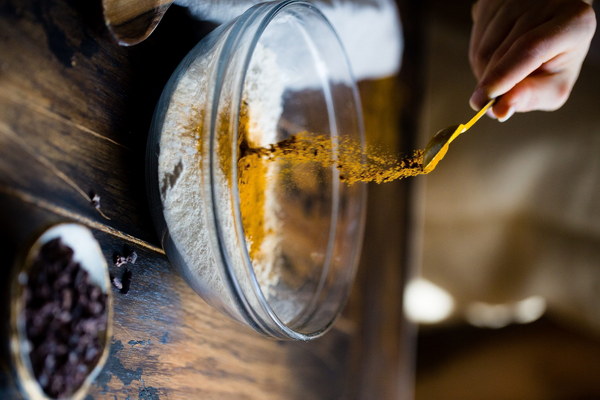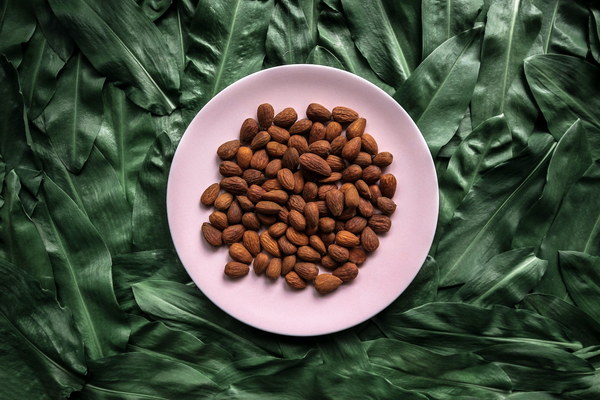Revitalize Your Lungs with These Traditional Chinese Herbs Tea Remedies
In the realm of traditional Chinese medicine (TCM), the lungs hold a significant place in maintaining overall health and vitality. The lungs are responsible for the intake of oxygen and the removal of carbon dioxide, making them crucial for the body's energy production. When the lungs are weak or damaged, it can lead to respiratory issues such as coughs, colds, and allergies. To address this, TCM offers a variety of herbal tea remedies designed to nourish, moisten, and replenish the lungs. Here, we explore some of these potent herbal teas that can help you breathe easier and feel revitalized.

1. Elderberry Tea (Sambucus Nigra)
Elderberry tea is a popular choice for its immune-boosting properties. The berries are rich in antioxidants, flavonoids, and vitamins, which can help strengthen the lungs and reduce inflammation. To make elderberry tea, steep dried elderberries in hot water for 10-15 minutes. For added flavor, you can add honey or lemon.
2. Goji Berry Tea (Lycium Barbarum)
Goji berries are known for their adaptogenic properties, which help the body adapt to stress. They are also rich in vitamin C, selenium, and other nutrients that can support lung health. Simply steep goji berries in hot water for 5-10 minutes. This tea is sweet and slightly tart, making it an enjoyable drink throughout the day.
3. Mulberry Leaf Tea (Morus Alba)
Mulberry leaves are a powerhouse of nutrients, including vitamin C, vitamin K, and antioxidants. They have been used in TCM to improve respiratory health and support lung function. Brew mulberry leaf tea by steeping dried leaves in hot water for 5-10 minutes. This tea has a mild, earthy flavor and can be enjoyed hot or cold.
4. Peppermint Tea (Mentha Piperita)
Peppermint tea is not only refreshing but also beneficial for respiratory health. It has anti-inflammatory properties that can help relieve congestion and soothe the throat. To make peppermint tea, steep fresh or dried peppermint leaves in hot water for 5-10 minutes. Adding honey can enhance the flavor and provide additional respiratory benefits.
5. Licorice Root Tea (Glycyrrhiza uralensis)
Licorice root is a staple in TCM for its ability to nourish the lungs and soothe the respiratory system. It has anti-inflammatory properties and can help reduce cough and sore throat. To prepare licorice root tea, steep the root in hot water for 15-20 minutes. This tea has a sweet, slightly bitter taste and is best consumed warm.
6. Thyme Tea (Thymus vulgaris)
Thyme is a well-known herb for respiratory health, with antiseptic and expectorant properties. It can help clear mucus from the lungs and relieve coughs. To make thyme tea, steep dried thyme leaves in hot water for 5-10 minutes. You can also add honey or lemon to enhance the flavor and respiratory benefits.
7. Honeybush Tea (Cyclopia Intermedia)
Honeybush tea is a South African herbal tea with anti-inflammatory properties that can help improve lung function. It is naturally caffeine-free and can be enjoyed hot or cold. Brew honeybush tea by steeping the leaves in hot water for 5-10 minutes. This tea has a mild, sweet flavor and can be a soothing option for those with respiratory issues.
Incorporating these herbal teas into your daily routine can help support lung health and promote overall well-being. However, it's important to consult with a healthcare professional before starting any new herbal regimen, especially if you have pre-existing health conditions or are taking medication. By nurturing your lungs with these traditional Chinese herbs, you can breathe easier and live a healthier life.









